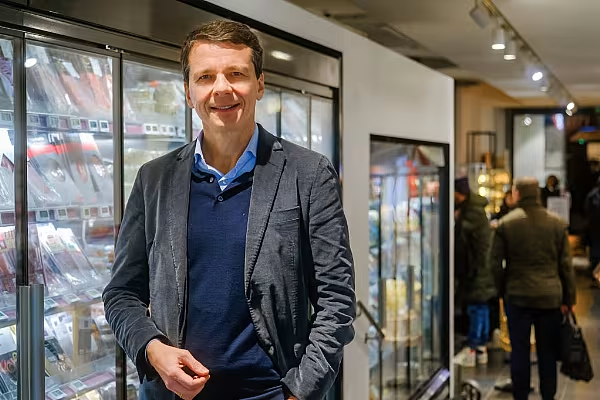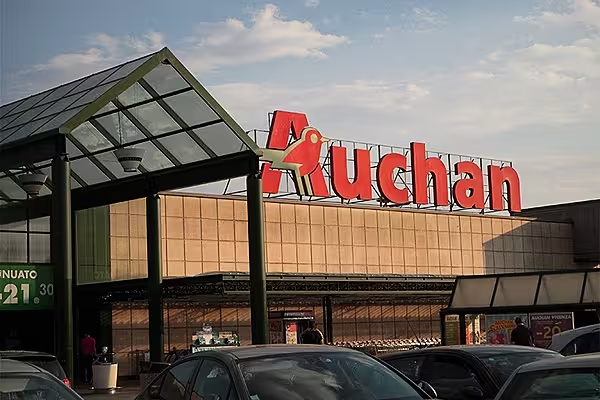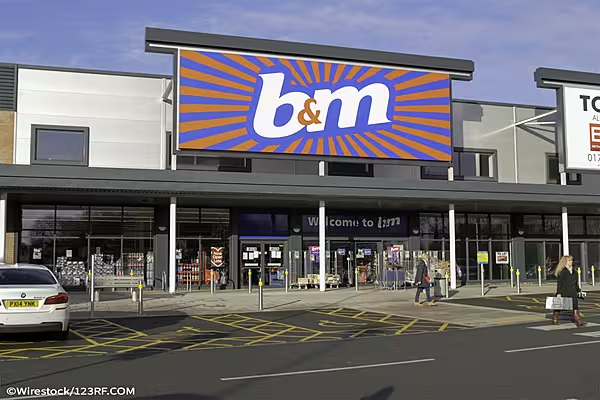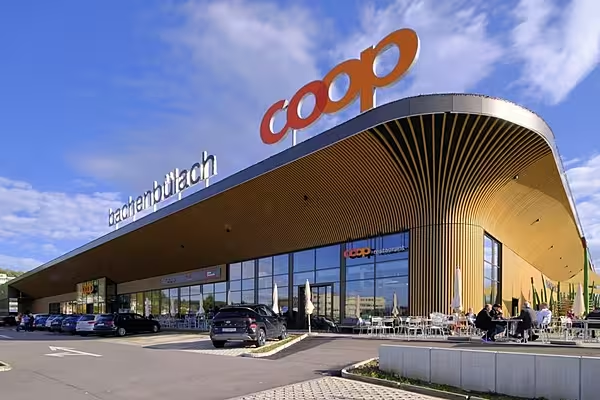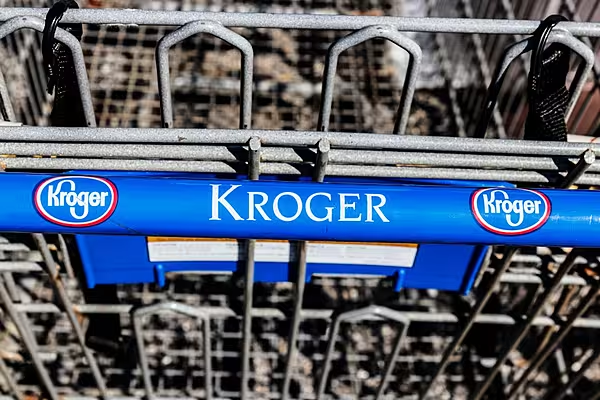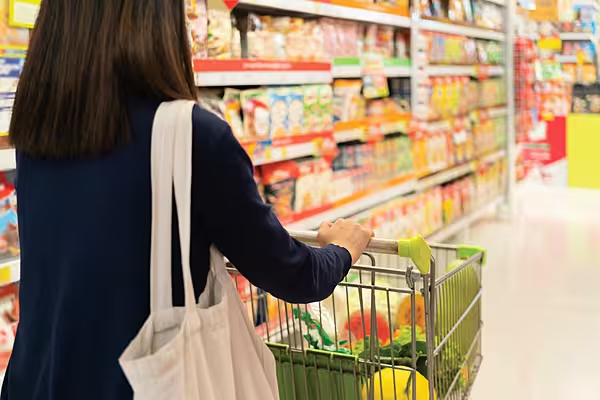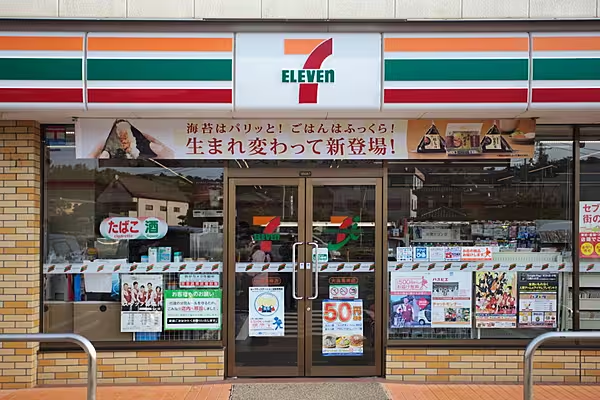Guillaume Sénéclauze, appointed chief executive of Monoprix last May, believes that one of France’s longest-standing retailers has a promising future in store. Stephen Wynne-Jones met him. This article first appeared in ESM March/April 2023.
It has been dubbed the ‘grand dame’ of French retail, and there’s no doubt that Monoprix has embedded itself into the public consciousness in the nine decades since it its foundation in Rouen, in 1932.
Owned outright by Groupe Casino since 2013 – building on its acquisition of 50% of the business from Galeries Lafayette in 2000 – the Clichy-based operator is as renowned for its fashion, home and beauty products as it is for its food – ‘making the beautiful and the good accessible to all,’ as a mission statement on the retailer’s website puts it.
The Monoprix business now incorporates a variety of different banners, including Monoprix, monop’, monop’daily, monop’beauty, monop’station, Monoprix Maison (a new homeware-specific banner) and Naturalia, France’s largest organic retail chain – and, as of last year, it’s been headed up by a new chief executive, Guillaume Sénéclauze.
As Sénéclauze sees it, the strength of the Monoprix brand is partly due to its presence in some 215 city and town centres across France – “When I visit a city, I look for the City Hall because there’s always a Monoprix beside it,” he explains – and partly due to its promise of accessible luxury. Perhaps most of all, it is driven by a close affinity with its customers – the cornerstone of the brand’s legacy.
“If any brand exists for 90 years and has gone through different crises, wars, and other ups and downs, it’s because it has something in its DNA that is extremely important,” Sénéclauze tells ESM.
“Yesterday, I was watching an influencer on Instagram, and she advised people to ‘go to your Monoprix’ to pick up a particular product. You wouldn’t say ‘go to your Tesco’ or ‘go to your Waitrose’ in the same way. There’s a special emotional bond – this is ‘my Monoprix’.”
Here Comes Sénéclauze
Sénéclauze assumed the role of president of Monoprix and Naturalia in May 2022 and also holds a position on Groupe Casino’s executive committee. He began his career with various positions in the consumer goods industry, and he has held a number of roles in the retail sector for close to 25 years – “one third in France, and two thirds outside of France,” as he puts it.
Following a stint at Carrefour – wherein he held positions in France, China and Poland – he then went on to Groupe Casino, first as general manager of its Big C arm in Vietnam, and then with Carulla Supermarkets, part of the Casino-owned Éxito Group in Colombia.
At Carulla, Sénéclauze played a central role in repositioning the high-end retailer, bolstering its omnichannel capabilities during a period of high inflation – a test run for his current role, in some respects.
“When you’re in charge of a premium brand, you can face many challenges – inflation, the growth of discounters, and decreasing consumption,” Sénéclauze says of his time at Carulla, “so what do you do? Do you decrease your prices to match the discounters, or do you go the other way, and reposition the brand to a level where you can definitively bring differentiation to your customers?”
Read More: 5 Takeaways From Groupe Casino's Full-Year Results
The Right Positioning
In its 2022 financial year, Monoprix reported a 1.2% net sales increase (on a same-store basis), with sales rising by 1.8% in the fourth quarter of the year. Some 16 new stores were opened in the final quarter, bringing the total number of new-store openings last year to 54, mainly under franchise.
Given the current inflationary situation, coupled with its reputation as a high-end retailer, Monoprix has had to think on its feet, to ensure that its added-value credentials continue to resonate with shoppers.
Last September, it unveiled its ‘Monopetitprix’ strategy, under which it has frozen the price of 300 essential items until at least June.
“This is one way to send a signal to customers that we are concerned about what’s happening,” says Sénéclauze.
The retailer has also increased promotional intensity, particularly for members of its Monoprix Plus scheme, which enables shoppers to avail of a 10% reduction on their basket, as part of a subscription service (€9.90 per month). Elsewhere, it has incorporated a wider range of low-price brands (such as Cristaline water) into its assortment, and it is embarking on a range consolidation initiative.
“We are reducing our assortment by more than 10%, in order to give more clarity to the customer,” Sénéclauze adds.
Three-Pillar Approach
At the core of Monoprix’s approach are three pillars that Sénéclauze believes are necessary for the business to thrive into the remainder of the decade and beyond.
The first of these pillars, building on the heritage of the brand, is to enhance the customer experience, both online and offline, while the second is to double its share of omnichannel sales within the next three years. Finally, within the last pillar, Monoprix is aiming to open 100 stores each year until 2025, across its various banners, adding to its store count of 858 as of 2022 year end.
“We have worked hard on the basics in our stores, launching what we call the ‘base contract’ with our customers,” says Sénéclauze. “This aims to address the ten frictions that you might have when you’re in a store, such as queue times, cleanliness, out-of-stocks, and so on.”
In driving its omnichannel ambitions, the group has forged a number of notable partnerships. It was the first international grocer to sign up to the Ocado Smart Platform (OSP) technology, developed by UK-based retailer Ocado, the benefits of which are starting to be realised. Its first Ocado-powered customer fulfilment centre, in Fleury-Mérogis, went live in 2020, serving Greater Paris and the Normandy and Hauts-de-France regions.
Elsewhere, Monoprix has teamed up with Amazon to avail of the online giant’s Prime delivery platform while working with quick-commerce operators Gorillas and Frichti (now amalgamated into Getir). Is there a certain degree of overlap when dealing with so many third-party providers?
“They service different shopper missions, and, actually – when you look at what people are purchasing – the size and cost of the basket are very different,” says Sénéclauze. “When you are dealing with large baskets, that’s powered by the Ocado partnership and takes some time to prepare, or you can also have a smaller selection delivered to you in 15 minutes through quick commerce. In the middle, you have the top-up shop, delivered by Amazon Prime in two hours.
“Is it going to stay like this forever? The segmentation will change, based on customer habits, but what is certain is that there is a demand for these services.”
It’s also a rational approach, given the level to which technology continues to adapt. Rather than seek to develop its own in-house e-commerce solutions, Monoprix has teamed up with some of the best in the business, tailoring its offering in line with changing market opportunities.
“I believe it is an act of humility to understand that, alone, we can’t do everything,” says Sénéclauze. “It’s also about being pragmatic. When you’re dealing with companies like Amazon, you could say, ‘OK, I could fight against the big guy,’ or you could say, ‘I could work alongside him.’”
When it comes to the group’s store-opening ambitions, Sénéclauze says that its monop’ banner is likely to receive most of the attention. It was the star performer in the Monoprix estate in the fourth quarter, seeing sales go up by 9%, along with a 10% rise in customer traffic – momentum on which the group is keen to build.
“It’s all about proximity,” says Sénéclauze. “If you have a store right next to you, which has everything you need, that’s quite a service.”
Playing The Long Game
The Naturalia business, which also falls under Sénéclauze’s remit, has perhaps a more challenging outlook, given that price perceptions in organic retail are traditionally higher – something that is anathema to those seeking bargains in an ongoing cost-of-living crisis.
“In France, organic products are 20% to 30% more expensive due to higher cost of production,” Sénéclauze says of the challenges facing organic retailers in general. “At the moment, there’s an obsession with price in the criteria of choosing a store – price is number one. Health, in the priority list of consumers, is lower. The market has been very much impacted by this change.”
Notably, Naturalia ended 2022 with exactly the same number of stores (198, plus 51 under franchise) as it started with – a testament to the brand’s strength in what is a challenging environment for organic operators.
“There’s a lot of trust in Naturalia,” Sénéclauze says. “It’s nationwide, it has good locations – these are factors that protect it.”
This stability, he explains, reinforces the group’s position when it comes to the Naturalia brand – that organic retail is here to stay, despite the occasional blip in the market.
“We’re playing the long game,” he says. “It’s not just about managing and selling products, it’s a long-term mission that we have. Naturalia has B Corp certification – it’s the only food retailer in France to have that – so we have a commitment to protecting the organic value chain, and organic producers.”
“It takes three to five years to convert a field from regular to organic, so it would be irresponsible to say that once the market changes, we don’t need organic producers any more – and then, when things come around, that we need them again. It doesn’t work like this.”
On The Offensive
As he approaches a year in the job – and what a year! – Sénéclauze is confident that the three-pillar approach will reap benefits for Monoprix’s various banners and lead to a sales acceleration, once the economic climate settles.
“It’s definitely an offensive plan, not a defensive one,” he says. “Of course, we’ll defend the price points that are important for customers, but, aside from that, we’re aiming for differentiation.”
Read More: Magali Daubinet-Salen Appointed CEO Of Casino's French Banners
© 2023 European Supermarket Magazine – your source for the latest retail news. Article by Stephen Wynne-Jones. Click subscribe to sign up to ESM: European Supermarket Magazine.
